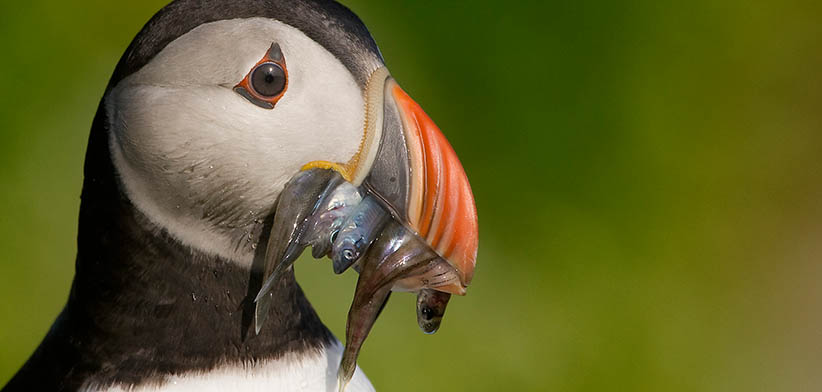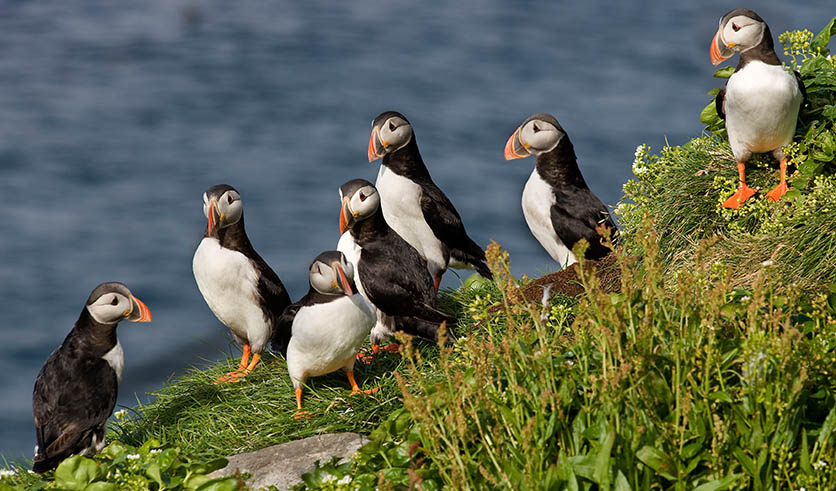|
Fratercula arctica
Atlantic Puffin, Lunnefågel, Lunde, Søpapegøje
In cooperation with Ole Jorgen Liodden
|
Atlantic Puffin (
Fratercula arctica ) in the low arctic sunlight of the small
Norwegian island, Hornøya, on Saturday the 4th of August
2007.
Have a look at this picture. Puffins only lay one egg. Only
raises one
chick. Considering the amount of Sand-Eel brought to the
nest by the parent bird, it must be a hungry little guy
waiting in that nest.
By August the feeding is about to be over with. The chick
has reached its peak weight at 300 grams and in a week or
so, the young little brother ( Fratercula, translates into
little brother ) will step out of the burrow, out in the
open for the first time and, literally in that same moment,
set off. Fly away, for good. Not to return.
That’s how it is with Puffins. Leaving the nest, the bird
will not set its pair of red feet on solid ground again for
several years. Not until it four to six years later, has
reached maturity, ready for the breeding. |
|

|
Puffins are birds of the ocean. A
pelagic bird. And as truly pelagic birds they spend their
lives offshore, on open sea. To us that’s still a bit of a
mystery, but the shape of their body, and their short and
relatively small wings are obviously better suited for water
maneuvers, water-flying and diving, than for actual open air
flying.
The parent-bird returning to the cliff, fish in their beak,
often takes more than two attempts, before it lands safely
in the grass.
It’s a dangerous game.
And then the Skuas are there as well.
Catching Sand-Eel underwater, is one thing. Getting the fish
from the water to the nest is yet another,
maybe even the tricky part. Thanks to the Skuas. Its a
struggle getting the Sand-Eel past the Skuas, safely from
the sea to the burrow and the waiting hungry chick.
The coastline is under the constant
surveillance of a whole pack of hungry Skuas ( Stecorarius
parasiticus ) patrolling back and forth above, and the
instant they catch eye of a beak full of fish, they’ll
attack. Often in numbers and stay on target till the Puffin
lets go of its prey.
Mouse-over the picture to see |
 |

|